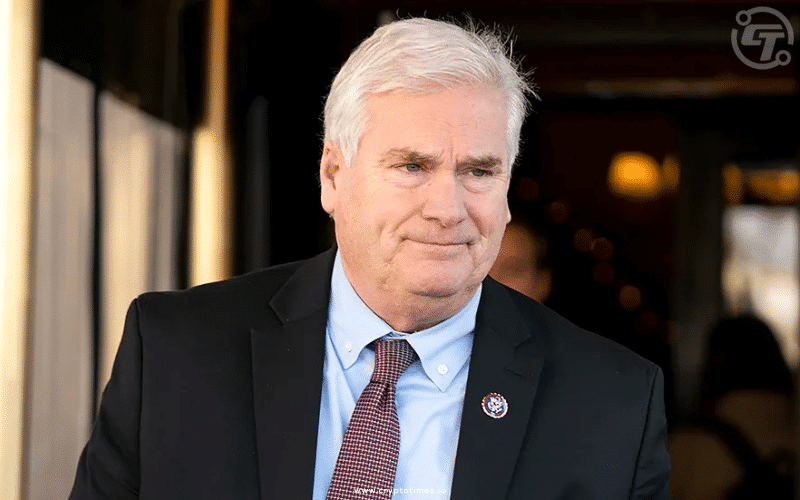The House Financial Services Committee approved eleven bills on September 20, aimed at enhancing national security, safeguarding the financial privacy of Americans, and ensuring that a central bank digital currency (CBDC) cannot be created without clear permission from Congress.
Tom Emmer’s bill was passed after several other bills had been passed through the committee. He distinguished his bill by saying, “It halts the efforts of the administrative state under President Biden from issuing a financial surveillance tool that will undermine the American way of life.”
He added, “If not designed to emulate cash, [it] could give the federal government the ability to surveil and restrict Americans’ transactions.”
When introducing the bill, Tom Emmer brought up the Chinese digital currency (digital yuan) and their government’s social credit system.
He also mentioned Canada’s decision to freeze bank accounts during the truckers’ protest in 2022. Emmer stated that the bill has garnered support from 60 senators and various organizations.
Maxine Waters, a Ranking member, renamed the bill The CBDC Anti-Innovation Act. According to her, it would threaten the dollar’s status as the principal global reserve currency. Stephen Lynch raised concerns about some unclear and contradictory wording in the bill. Waters and Lynch proposed changes to a bill but it did not get a majority of votes.
Additionally, there were discussions and debates about what kind of research related to Central Bank Digital Currency (CBDC) would be permitted under the bill, and this topic came up multiple times during the debate.
This digital currency could be used to bypass U.S. sanctions. Waters mentioned a pilot program called mBridge involving China, Hong Kong, Thailand, and the United Arab Emirates as an example.
The committee took a break at 1:30 p.m. local time after discussing the bill for four hours.
When they resumed the discussion, the committee decided not to accept the proposed changes and passed the bill. They recommended it to the full House for approval with a vote of 27 in favor and 20 against.
Also Read: Tom Emmer’s Proposed Bill to Safe Harbor Blockchain Devs







